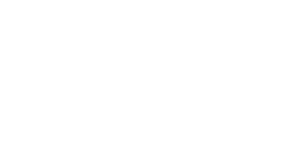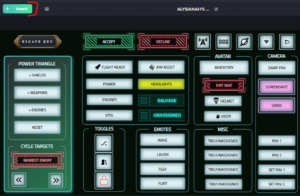[vc_row][vc_column width=”2/3″][vc_column_text]
Excerpt…
This week’s episode is a long time coming for me. The idea began with the release of the Star Citizen ARK Starmap and evolved over time, as I delved into the data to understand how it could be used to inform my gameplay. I manually compiled a Starmap matrix and shared it with the community via a Google Sheet. The purpose was to present the data in a manner that was easier to consume and scan, especially on mobile devices. It’s not as sophisticated as the Starmap itself but served its purpose. I’ve now matured that idea in an auto-populated website.
Show Transcript
Welcome to another episode of Casual Citizen. An on-going series about the upcoming first person MMO, Star Citizen by Cloud Imperium Games. I’m your host Alysianah from the Mystic Worlds Gaming Blog. This week’s episode is a long time coming for me. The idea began with the release of the Star Citizen ARK Starmap and evolved over time, as I delved into the data to understand how it could be used to inform my gameplay. I manually compiled a Starmap matrix and shared it with the community via a Google Sheet. The purpose was to present the data in a manner that was easier to consume and scan, especially on mobile devices. It’s not as sophisticated as the Starmap itself but served its purpose. I’ve now matured that idea in an auto-populated website.
Feel free to follow along on the live site which is https://contentcreatorsunlimited.com/. I’m reusing a domain I had available when I began this journey. A future release will change it over to the permanent domain I have in place.
Please sit back, relax and enjoy.
BEGIN TRANSMISSION
I started down this road after becoming intrigued by the information presented in the official ARK Starmap. It was entertaining to explore what will become our physical universe and read the bits of lore it contained. I enjoy the lore for its storytelling aspects. And I also endeavor to include lore and star system information in my content, to enhance the context of the topic being discussed. The star system information is also very relevant to player careers, a huge focus for me in MMOs.
This site reflects a desire to have the star system information more accessible and create opportunities to combine it with relevant lore from the Galactic Guides. The ARK Starmap itself is amazing. It’s useful for many tasks and not for others.
For example, a player is starting out in the mining career.
They might want to know things like:
- What are the safest UEE star systems that contain asteroid belts?
- What are the systems closest to where their ship is that contain asteroid belts?
- What asteroid belts contain common minerals suited to beginning miners?
You’d be hard pressed to quickly or easily answer these questions using the ARK Starmap.
A group of friends wants to organize a refueling run using the Starfarer. They’re going to have escorts, some of whom want to engage in local combat while the Starfarer is sitting around sucking up vapors.
- What are the star systems that contain gas giants?
- Of those, which have a moderate amount of combat activity?
Again, it would be tricky and time consuming to use the ARK Starmap to answer these questions. They’re better suited to an environment where you can see information about multiple star systems at once, search for specific star system attributes, filter and sort the data returned. This is what I’ve tried to accomplish in a straightforward and simplistic manner. It ain’t fancy but it works.
BASIC FEATURES
- Daily retrieval of data from the official ARK Starmap – frequency will be increased as necessary
- Starmap Matrix page that shows all known star systems
- Designed to support easy scanning of high level system data
- Supports searching for a specific system
- Clicking column headings will sort the matrix by that attribute
- Clicking a star system name goes to its Detailed System Composition
- Detailed Star System Composition
- Shows all celestial objects within a single star system
- Star System Dossiers
- Combines matrix elements and detailed system composition view
- Prefiltered to specific player careers
- Refueling – star systems that have gas planets. Is relevant to refueling career/ships.
- Mining – star systems that have asteroid belts or fields. Is relevant to mining career.
- Green Planets – star systems that have green planets. Is relevant to careers that rely on populations of consumers – import, export, passenger transport, etc.
- Fair Chance Act – star systems designated as protected for developing species. Is relevant to science and potentially contraband and black market activities.
- Trade – coming in next release – relevant to cargo hauling opportunities, import, export and black market
CLOSER LOOK AT THE STARMAP MATRIX
- Lists all known star systems.
- Intended as a quick way of scanning basic star system information.
- Assists in identifying systems that may warrant a more detailed review.
- Designed to answer “which systems…” type questions
- Contain two stars?
- Belong to the UEE?
- Have high or low populations, economies and/or danger?
Use the following features to answer those types of questions:
- Each of the columns can be used to sort the data in the table by clicking the column heading such as “System Name” or “Type” or “Population”, etc. The first click sorts A to Z. Clicking a second time sorts Z to A.
- You can search for a specific system by typing the name in the search bar located directly above the table and pressing Enter. Delete the value and press enter again, to see all systems.
- Population, Economy and Danger use stoplight coloring metaphor. It’s a method for more quickly identifying good, poor and bad performance. This can be tricky when it comes to player professions since good and bad can be subjective. In this case I used it to denote volume – how much exists according to the starmap.
- High economy or population will be green. Low will be red. Conversely, high danger will be red and low will be green.
- To see more details about a single star system click it’s name. This will take you to the next page we’re about to discuss, the Detailed Star System Composition page.
CLOSER LOOK AT THE DETAILED SYSTEM COMPOSITION DOSSIER
The intent of System Composition page is a deep dive into a single star system.
- Displays all of a star system’s known celestial bodies and jump points.
- Includes the descriptions and other useful information.
- Celestial objects are grouped by Type – Stars, Planets, Jump Points, Man Made, Asteroid Belts and Satellites.
- Next release will combine information gleaned from the Galactic Guides.
- There’s more information available but I’m still sifting through it. Remember, this is a work in progress.
MULTI-SYSTEM DOSSIER PAGES – PUTTING DATA IN TIGHTER CONTEXT
The more context you can incorporate into information, the more useful it becomes for answering specific questions. This idea manifests itself in what I’m calling Dossier pages. Dossiers combine Starmap matrix, System Composition and lore into predefined scenarios, where each scenario represents player career opportunities such as mining, fuel collection, cargo hauling, etc.
Dossier pages show multiple star systems so contain fewer data points than the System Composition page. It’s just enough celestial data + lore and user contributed data in the future, to assist in logistics planning.
I enjoy having data at my fingertips to help inform decisions. It’s a natural desire for me, given that I’m a data analyst turned product manager for analytic solutions. This natural mode of behavior supercharged by resolve to make the available data more consumable.
All of the dossier pages behave similarly :
- Initially shows all star systems that meet the intent of that page
- Support multi-system filtering
- Supports multi government alignment filtering
- Planet information within each star system section can be sorted by clicking column headings
- Lists the jump points associated with all systems currently displayed to help identify common pathing for route planning
- Jump Point table can be sorted by clicking column headings
RECAP
I consider the Matrix view and System Composition pages to be the fundamental locations for investigating what we know about the physical Star Citizen universe. The matrix is the designed to support quickly scanning through the known star systems. The System Composition is the deep dive view where you confirm that a star system will meet your needs. If you’re doing logistical planning for a specific career, check to see if there’s a dossier page that might be helpful.
While Google Chrome is the recommended browser for this site it should work with IE. Some of the pages such as the Matrix work quite well with in iPad too. I hope you’ve enjoyed this episode and will check out Alysianah Noire’s World of Star Citizen at https://contentcreatorsunlimited.com/.
There’s more to the site than the Starmap data, so take time to explore it. Until next time be kind and fly safe!
END TRANSMISSION[/vc_column_text][/vc_column][vc_column width=”1/3″][vc_gallery el_id=”gallery-117931″ medias=”50002,49021,49874,49567,49565,49564″ gutter_size=”3″ media_items=”title,media|lightbox|original,icon” screen_lg=”1000″ screen_md=”600″ screen_sm=”480″ single_text=”under” single_overlay_opacity=”50″ single_text_visible=”yes” single_text_anim=”no” single_padding=”2″ lbox_title=”yes”][/vc_column][/vc_row]




